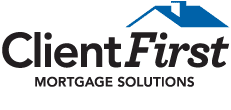
Is it time to pay off your mortgage?
Largest single asset owned
The largest single asset owned by most Canadians is their house. Many homeowners have debt against their house in the form of a mortgage.
Initially, a home buyer combines a down payment and mortgage to purchase their house. Home equity builds as the mortgage is paid off and the market value appreciates.
Taking on additional debt
For many, low interest rates are an enticing trap to take on additional debt. Over time some homeowners borrow against their house to pay for other things, including increased lifestyle spending. In this sense, home ownership can provide a false sense of security.
Home Equity Line of Credit
According to a report by William Dunning, the chief economist of Mortgage Pros Canada (the national mortgage association) at the end of 2016 an estimated 500,000 Canadians had a Home Equity Line of Credit (HELOC), and another 1.48 million had a HELOC and a mortgage.
The risks
There is a risk to using your home as money-in-the-bank, especially if your mortgage consumes a large part of your paycheck each month. For example, changing business conditions could lead to job loss or a decrease in pay. Often two people are contributing to mortgage payments which doubles the risk of lost earning power.
Changing interest rates
Low interest rates are a golden opportunity to pay down mortgage debt.
If interest rates increase, many mortgage holders will have to stretch their cash flow just to make regular payments. In some cases, higher interest rates will result in homeowners having to sell because their home-sweet-home is no longer affordable.
Here are a few simple ways that may help you reduce your mortgage:
Direct all work-related bonuses to reducing your mortgage. Have the discipline to line within the means of your regular paycheck so bonuses can be directed to reducing debt.
Most Canadians get a tax refund and these funds can be used to reduce the mortgage balance.
Any windfalls including gifts or inheritance can be used to pay off debt.
If you have excess funds in your bank account, some of these funds could be used to reduce your mortgage. The interest rate you currently earn on bank account money is low or zero. Plus, any bank interest earned is taxable. It is a good idea to use those excess funds to reduce your mortgage.
Consider using excess cash flow to increase regular mortgage payments. Check the details of your mortgage to see what options are available.
Set an objective on how much you would like to pay down on your mortgage during the year and then have other spending tied to the success of achieving that objective. For example, if you are planning a vacation next year consider paying down your mortgage by a certain amount before spending money on your holiday.
If the fear factor works to help motivate you to reduce debt, calculate what your mortgage payments would be if interest rates increased by two or three percentage points. Click on the link to use our mortgage calculator to help you calculate these payments.
How we can help you
Managing the reduction and elimination of your mortgage is an important financial planning consideration. Be proactive to determine what is best for you. At Client First Mortgage Solutions we are always up to date on the current market situation, and are able to provide you with all the information needed for you to make the best most informed decision. Please contact us today!
Original Article – InsideHalton.com – November 3, 2017


